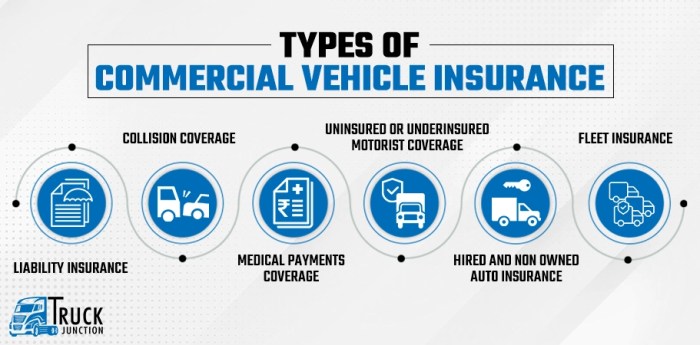Exploring the realm of small business insurance providers opens up a world of possibilities. From navigating the intricacies of coverage options to delving into pricing structures, this guide will equip you with the knowledge needed to make informed decisions for your business.
As we delve deeper, you will uncover the key components that define the best small business insurance providers in the market today.
Researching Small Business Insurance Providers
Researching and identifying the best small business insurance providers is crucial for protecting your business from unexpected risks. Here is a step-by-step guide on how to compare different insurance providers and the key factors to consider when evaluating them.
Step-by-Step Guide on Comparing Insurance Providers
- Start by identifying the specific insurance needs of your business, such as general liability, property insurance, or workers' compensation.
- Research different insurance providers online, read reviews, and check their ratings with independent agencies like A.M. Best or J.D. Power.
- Request quotes from multiple providers to compare coverage options, premiums, deductibles, and any additional services offered.
- Consider the financial stability of the insurance company by reviewing their financial strength ratings to ensure they can pay claims when needed.
- Look for providers that offer customizable policies to meet the unique needs of your business and provide excellent customer service.
Key Factors to Consider when Evaluating Insurance Providers
- Coverage Options: Ensure the provider offers the specific types of insurance your business requires.
- Cost: Compare premiums, deductibles, and any additional fees to find a policy that fits your budget.
- Customer Service: Check reviews and ratings to determine the level of customer service provided by the insurance company.
- Claims Process: Evaluate how easy and efficient the claims process is with each provider.
- Reputation: Consider the reputation and experience of the insurance company in the industry.
Types of Insurance Coverage Offered
When it comes to small business insurance, there are several types of coverage options available to protect your business from various risks and liabilities. It is essential for small business owners to understand these different types of insurance coverage to make informed decisions about the right protection for their specific needs.
General Liability Insurance
General liability insurance is a fundamental coverage that protects your business from claims related to bodily injury, property damage, and advertising injury. It helps cover legal fees, settlements, and medical expenses if your business is sued for causing harm to others.
Property Insurance
Property insurance provides coverage for your business property, including buildings, equipment, inventory, and furniture, in the event of damage or loss due to fire, theft, vandalism, or other covered perils. It helps you recover and replace your assets to keep your business running smoothly.
Professional Liability Insurance
Professional liability insurance, also known as errors and omissions insurance, protects your business from claims of negligence, errors, or omissions in the services you provide. It is essential for businesses that offer professional advice or services to clients.
Workers' Compensation Insurance
Workers' compensation insurance is mandatory in most states and provides benefits to employees who are injured or become ill while on the job. It covers medical expenses, lost wages, and rehabilitation costs, helping your employees recover without financial burden.
Business Interruption Insurance
Business interruption insurance helps cover lost income and expenses if your business operations are disrupted due to a covered event, such as a natural disaster or fire. It can help your business survive during the recovery period by providing financial support.
Commercial Auto Insurance
Commercial auto insurance covers vehicles used for business purposes, protecting your company from liabilities in case of accidents, damage, or theft. It is essential if your business relies on vehicles for daily operations.
Cyber Liability Insurance
Cyber liability insurance helps protect your business from cyber threats, data breaches, and hacking attacks. It covers costs associated with investigating a breach, notifying affected parties, and recovering from cyber incidents, safeguarding your business from financial losses.
Importance of Choosing the Right Coverage
Choosing the right type of insurance coverage for your small business is crucial to protect your assets, finances, and reputation. By understanding the different types of coverage available and assessing your business risks, you can tailor your insurance policy to meet your specific needs and ensure comprehensive protection against potential threats.
Cost and Pricing Structures

When it comes to small business insurance, understanding the cost and pricing structures is crucial for making informed decisions. Insurance providers determine costs based on various factors such as the type of coverage, business size, industry risks, location, claims history, and the level of coverage needed.
Comparing pricing structures of different insurance providers can help small businesses find the most affordable options without compromising on quality.
Factors Influencing Insurance Costs
- Industry Risk: High-risk industries may have higher insurance premiums due to increased likelihood of claims.
- Business Size: Larger businesses may pay more for insurance due to higher coverage needs.
- Claims History: A history of frequent claims can lead to higher premiums.
- Location: Businesses in high-crime or disaster-prone areas may face higher insurance costs.
Comparing Pricing Structures
- Fixed Premiums: Some insurance providers offer fixed premiums, making it easier for small businesses to budget.
- Pay-As-You-Go: Pay-as-you-go insurance allows businesses to pay premiums based on actual usage or risk exposure.
- Bundled Policies: Bundling multiple insurance policies with the same provider can lead to discounts and cost savings.
Tips for Finding Affordable Coverage
- Shop Around: Compare quotes from multiple insurance providers to find the best rates.
- Review Coverage Needs: Only purchase the coverage your business truly needs to avoid overpaying.
- Consider Deductibles: Choosing a higher deductible can lower premiums, but be prepared to pay more out of pocket in case of a claim.
- Ask About Discounts: Inquire about available discounts for factors like safety measures, business associations, or loyalty.
Customer Reviews and Satisfaction

Customer reviews and satisfaction play a crucial role in determining the reliability and quality of a small business insurance provider. By evaluating feedback from other customers, business owners can gain insights into the level of service, claims processing efficiency, and overall customer experience offered by different insurance companies.
This information is valuable in making an informed decision when selecting a provider to protect their business.
Accessing and Evaluating Customer Reviews
- Visit independent review websites such as Trustpilot, Consumer Affairs, or Better Business Bureau to read customer reviews for various insurance companies.
- Look for patterns in reviews regarding customer service, claims processing, coverage options, and premium rates to gauge the overall satisfaction of policyholders.
- Consider the number of reviews and the overall rating of the insurance provider to get a comprehensive understanding of customer feedback.
Impact of Customer Feedback on Insurance Providers
- Positive customer reviews can enhance the reputation of an insurance provider and attract new customers looking for reliable coverage.
- Negative reviews can signal potential issues with claims processing, customer service, or coverage options, leading to a loss of trust among existing and prospective policyholders.
- Insurance companies that prioritize customer satisfaction and address feedback promptly are more likely to build long-lasting relationships with their clients.
Final Thoughts

In conclusion, the quest for the best small business insurance providers is a journey filled with nuances and considerations. By understanding the research process, types of coverage, pricing structures, and customer satisfaction, you are well-equipped to safeguard your business with the right insurance partner.










